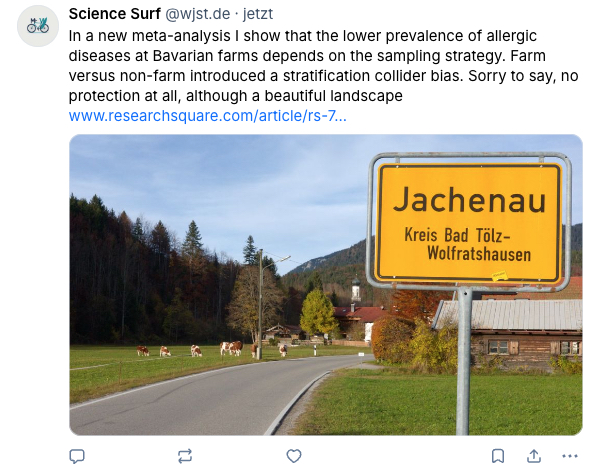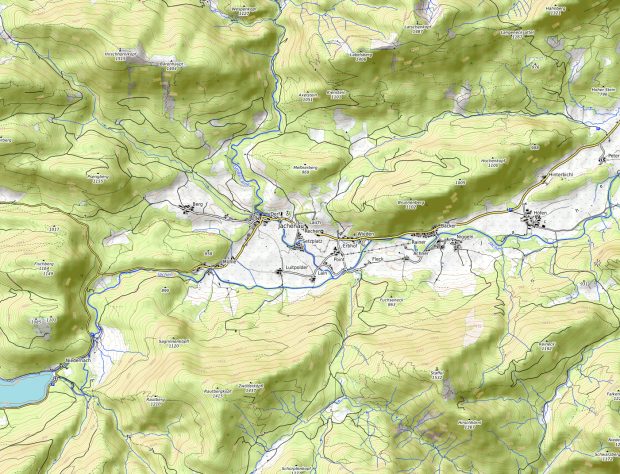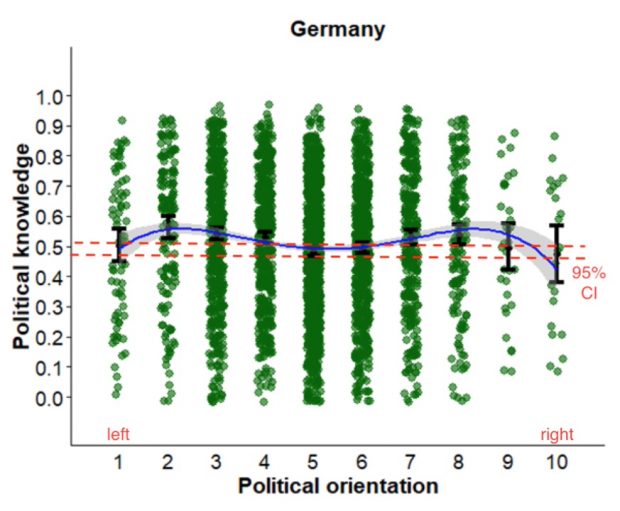I have written before about the myth of an allergy protection here in Bavaria while we now have an empirical proof – it is a non causal association introduced by colliding.
Unfortunately millions of tax payer money have been wasted on that idea, misleading newspaper articles published and fancy prices given.
I have no idea where the obsession with dung hills originates (early childhood trauma?) and why this had been prized many times.

Jachenau was one of my favorite locations in the 1989/1990 Upper Bavarian Allergy Study where we (re)discovered the low allergy prevalence in farmers that had been forgotten for a century.

We had been in Jachenau on April 30, 1990. Examining 20 kids we found zero asthma, zero allergic rhinitis and just 2 out of 20 children showed borderline positive grass skin prick tests at 3 mm and 4 mm wheal size respectively. This was definitely one of the lowest prevalences but not only in the children, also in their parents and is being confirmed now 3 decades later by meta-analysis of many more farming studies.
